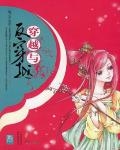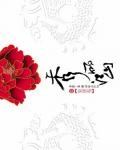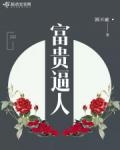Volume 1: Birth! Seven time travelers Chapter 041: A Slap on the Face Must Hurt (Part 2)
"Are you Cao Sanxi?"
"I, Cao Sanxi, pay my respects to the Crown Prince!"
"Hi~~Where are you from?"
"I am from Taigu, Shanxi."
"Where are you from? Hey, Otomo, do you speak Shanxi dialect?"
In the few months since the soap was developed, a lot of changes have taken place around Zhu Youdong.
First, his request to live in a separate palace was approved by Wanli: In the eyes of the emperor, the current prince was hopeless. The future hope of the Ming Dynasty still rests on the grandson. It would be good for the grandson to move out earlier and be less poisoned by the stupid prince. Moreover, as the crown prince, the grandson had the power to open a palace. Therefore, with the emperor's approval and in accordance with etiquette and law, Zhu Youdong moved out of Ciqing Palace.
His new palace was outside the palace city, but inside the imperial city. Outside Donghua Gate, south of Guanglu Temple and north of Chongzhi Hall. Emperor Wanli personally wrote the name of his residence: Xinghua Palace, in accordance with Zhu Youdong's request. Then Emperor Wanli assigned 30 guards, eunuchs and palace maids to Zhu Youdong's service.
With his own palace outside the palace city, Zhu Youdong's activities became much more convenient. For example, now he can receive a commoner in his own palace.
Standing next to him at this time was Cao Huachun who had returned from Jiangnan.
This young man, who is only sixteen years old now, has a humble family background like Old Wei. But compared with Old Wei's silly face, he is talented and handsome, so he was trained as soon as he entered the palace and became an elite among the eunuchs. This time, after being sent to Jiangnan by Zhu Youdong for a few months, his demeanor became more and more calm.
He returned to Beijing in May of that year, and when he came back, he brought back not only seeds and even seedlings of potatoes, corn, and sweet potatoes, but also various new plants such as peppers, tomatoes, sunflowers, and peanuts. Not only that, after traveling south from northern Zhili, he also collected rice seeds from all the provinces along the way.
So, when he came back to report and return the remaining two hundred taels of silver, Zhu Youdong was very happy to let him keep the money for himself.
The remaining work, of course, was the responsibility of Xu Guangqi and Wei Zhongxian.
Xu Guangqi, a science and engineering man, is not only a scientist, but also an agronomist of this era. As for Lao Wei, he was born a farmer and is very skilled in farming. It is their duty to leave it to the two of them.
"Mr. Xu, potatoes, corn, and sweet potatoes are all high-yield crops that are not picky about the soil. In fact, some places in our Ming Dynasty have already started to plant them. I plan to use the power of the court to promote and plant them on a large scale. To do this, we must come up with strong data. Therefore, I have prepared 100 acres of land and 10 tenant farmers for you..."
"Please rest assured, I will plant carefully and do a thorough count. I will never let your wish go to waste."
"Old Wei, look at the rice from all over the place. Some have large grains and good taste, but low yield. Some have high yield but small grains. I want to make this hybrid rice, well, that's it... In this way, there will always be a kind of rice that can combine the advantages of various rice. Well, just pay attention to this matter when you have time. My Ming Dynasty is not short of food, but other things. Anyway, it's best if we can make it. Your most important task is to keep an eye on this row of workshops for me. After I finish the agency auction, I will be ready to launch new products."
At the auction held in August, Zhu Youdong identified a total of 15 provincial agents (among the two capitals and thirteen provinces, there was no agent in Northern Zhili. But another one, Liaodong, was added).
Although it was impossible for the Crown Prince, the Imperial Eunuchs, or even the ministers like Xiong Tingbi to appear in person at such an event, the merchants who were able to enter were all shrewd people: there was no need to guess who was behind the scenes for those who could mobilize the Imperial Guards to stand guard outside the auction venue.
Therefore, half of it was because of the quality of the goods, and half was to flatter the royal family. The fifteen big merchants who finally obtained the agency rights each paid a deposit of 10,000 taels and a franchise fee of 3,000 taels.
On this basis, Zhu Youdong gave them the following rules: I will give you the goods at 50% off the market price in Northern Zhili, and I don’t care how much you sell them for when you ship them back to other places. However, first, you are not allowed to sell them across borders to avoid vicious internal competition. Otherwise, not only will the deposit be confiscated, but you will not be supplied with goods in the future. Second, you are not allowed to advertise that the goods are expensive because the factory price is too high, and you are not allowed to mislead consumers overtly or covertly by saying that this thing is related to the upper class of the Ming Dynasty. If you violate this rule, haha, the punishment in the first rule must be enforced, and the Jinyiwei and others will come to your house to ask for tea.
The merchants of the Ming Dynasty in this era who were able to make their business one of the best in the province actually all had the support of the rich and powerful. They were naturally very happy to accept the two requests made by Shuangji Department Store. Overall, although many merchants got really angry during because they bid against each other, the auction ended smoothly after all.
In the end, Zhu Youdong not only got more than 200,000 taels of silver for nothing, but also received nearly 200,000 taels of payment for goods in one go - the soap that this money could buy was enough to keep his current small workshop busy for more than half a year.
However, since he had never been to a high-end auction house before crossing over, Zhu Youdong actually forgot to set up an identity verification before this auction. As a result, some people took advantage of the loophole and slipped into the auction house.
For example, Cao Sanxi.
"Your Highness, I am from Taigu, Shanxi. I am a country bumpkin and I am not familiar with Mandarin. Please forgive me, Your Highness."
Well, it's okay if you don't speak Mandarin. After I was born, I listened to the "Mandarin" of this era. In fact, my forehead hurt a lot. It took me several years to get used to it.
Cao Sanxi is now a commoner, not a pauper, but not rich at all. After sneaking into the auction, he did not shout when others were bidding, but waited until the auction was over to find the person in charge and asked to meet the owner of Shuangji Department Store.
Isn't the boss of this department store the crown prince? How can a commoner like you meet him? So he was thrown out without any suspense.
But this guy was very determined. For several days after the auction, he went to all six stores of Shuangji in Beijing and repeatedly asked to see the boss. Although he was either given the cold shoulder or driven away, he still insisted on asking for a meeting. Finally, one day, he ran into Zhu Youdong who was wandering around a store again. When he sent someone to ask his name, he said: Oh! This is a business genius!
In later generations, when people from other provinces talk about Shanxi, the first thing that comes to mind is probably coal. In fact, coal development in Shanxi started very early. At least in the Western Han Dynasty, there were records of Hedong County using coal to smelt iron.
Specifically in the Ming Dynasty, coal mining in Shanxi was also very prosperous. However, coal was almost all government-run in the Ming Dynasty. Therefore, for ordinary people in Shanxi, at least in the Ming Dynasty, coal mines were not reliable.
However, Shanxi is a province with mountains and rivers, and its territory is fragmented by mountains, plateaus, and tablelands, with few plains suitable for farming. Therefore, agriculture cannot support too many people.
Such a natural environment forced a large number of Shanxi people to go out to do business, which gave rise to many famous businessmen and formed a unique Shanxi merchant culture.
It should be specially pointed out here that there are two Eight Greats among Shanxi merchants.
First, the eight imperial merchants of the Qing Dynasty. They are the notorious Fan Yongdou, Wang Dengku, Jin Liangyu, Wang Dayu, Liang Jiabin, Tian Shenglan, Zhai Tang, Huang Yunfa and their families. In the historical plane, in the decades of the late Ming and early Qing dynasties, these eight families smuggled food and military supplies to the Qing rulers and helped the Manchus to launder money. It can be said that their hands were stained with the blood of their compatriots.
Second, the eight Shanxi merchants. These eight families are the Qiao family in Qi County, the Chang family in Yuci, the Cao family in Taigu, the Hou family in Jiexiu, the Qu family in Qi County, the Kang family in Linfen, the Fan family in Jiexiu (one of the imperial merchants of the Qing Dynasty), and the Kong family in Taigu. Among these eight families, except the Fan family in Jiexiu, the beginnings of the other seven families were not completely glorious. However, compared with the history of the eight imperial merchants mentioned above, their rise to wealth was much more upright.
And this Cao Sanxi is the key figure in the transformation of Taigu Cao family from ordinary farmers to super merchants!






